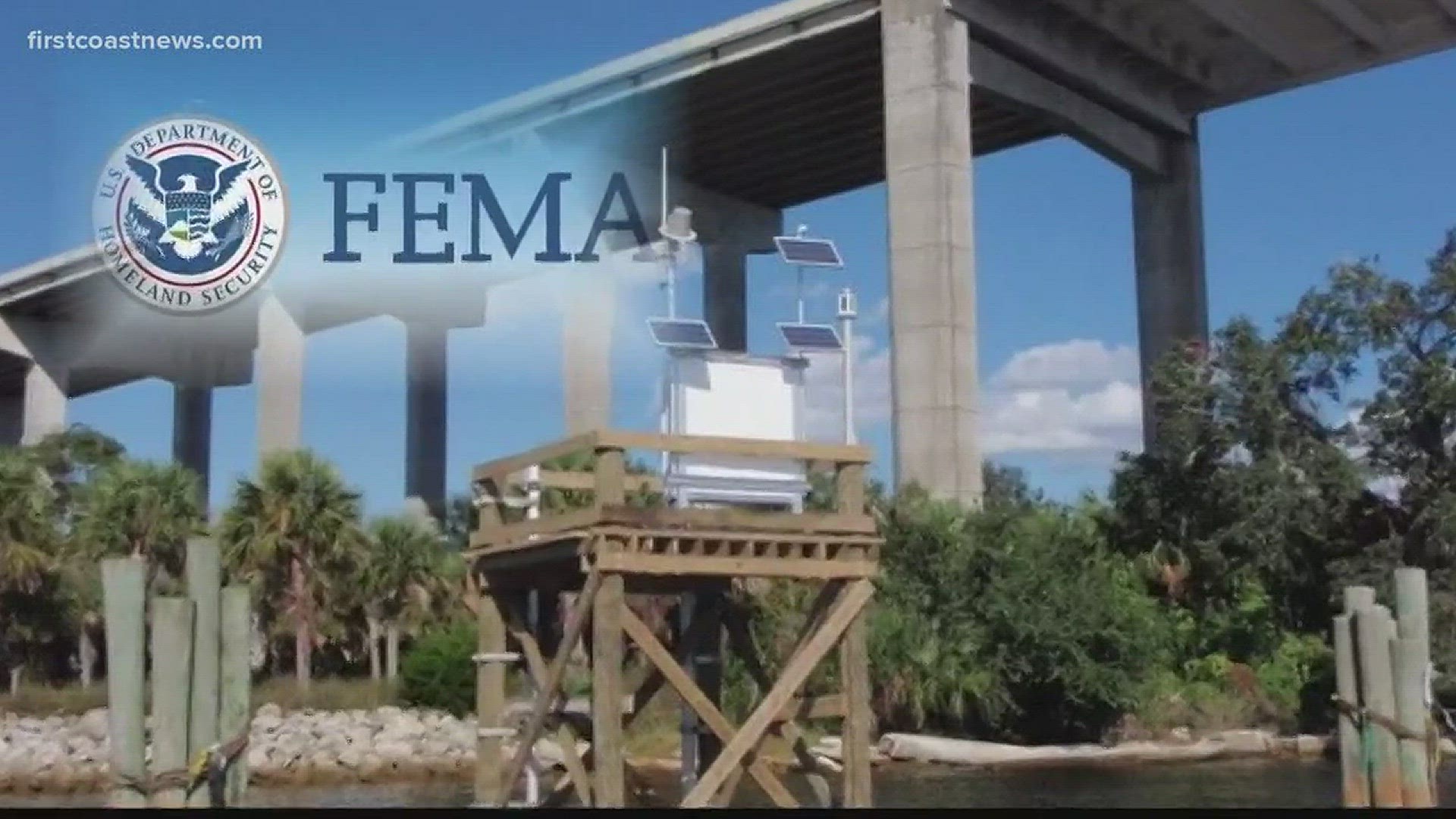JACKSONVILLE, Fla. -- A reported 365 people were saved by swift water rescue teams in Jacksonville during Hurricane Irma this time last year. The majority of those teams were supposed to go back down to Tampa days before, but they ended up staying in Jacksonville thanks to the information provided by a Port System of 64 tidal sensors along the St. Johns River that could predict the flooding days in advance.
Just as those sensors are credited with saving lives, they now need some saving of their own because they're out of money and almost out of time.
As First Coast News started the investigation into the Port System back in May, Captain Mike Getchell, the Executive Director of the Jacksonville Marine Transportation Authority who oversees the system, said he was finally getting people to listen to the importance of the sensors. The funding had just run out and he was hoping the city would step in.
"That report generated a lot of interest around town for the status of the sensors," said Getchell. "That investigative report you did was well worth it."
He was hoping FEMA would approve a new grant in August but they didn’t make the cut.
"Jacksonville got a fair share but our project was not on there," he said.
He says he became inundated with people who wanted to learn more after seeing the report.
"We met with Senator Rubio’s office, Senator Nelson's office, Councilwoman Lori Boyer had me address the City Waterway Commission meeting."
There was interest, but no money.
"I’ve already lost a number of the sensors already," he said.
On Wednesday morning Getchell received a surprise phone call from the new COO of Jax Port, Fred Wong. Finally, he says he received good news.
Wong told him about the effort to not only fund the entire sensor system but to also rebuild a sensor that was destroyed during Irma and add three more sensors around town. They would place the news sensors near Marco Lake, Jacksonville University and the Ortego Bridge.
He says this newfound support is coming from the city of Jacksonville, JEA, the Jacksonville Port Authority, TPO and NOAA.
While nothing is on paper, he’s confident the money will come through and the plans will come to fruition.
The city and JaxPort both say the discussions are ongoing and they can’t provide any concrete details yet, but they do want to support the system. The total cost is an estimated $1.1 Million for three years.
While they work out the details, Getchell says they want to know how much it would cost to keep the sensors working for the next six months. He estimates hundreds of thousands of dollars.
He wants to make sure the new sensors are more durable. He also hopes they can fund signs at each river sensor so people can see where they exist around town.

